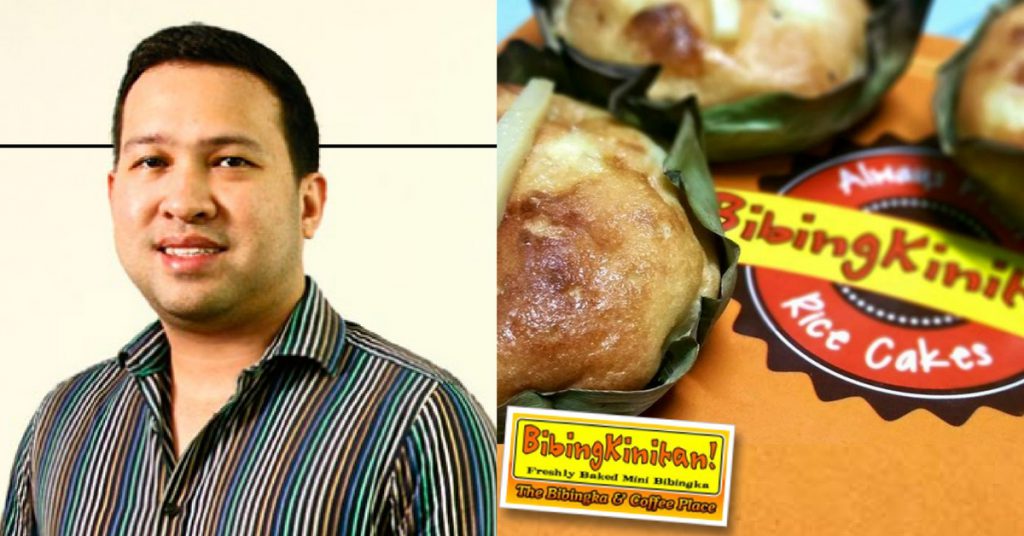Richard Sanz, the founder of Bibingkinitan, used to work in a multinational firm.
Though an engineer by profession, he decided to give up several career opportunities in order to pursue his dreams of having his own business.
In 2004, at the age of 23 and with a capital of Php 120,000, he took the risk of starting a small beverage business called Tea Square in Alabang Town Center. The brand offered different types of iced tea, milk tea, and bread snacks.
However, observing that Filipinos are more fond of drinking coffee than tea, he began to think another product that will surely be loved by the Filipinos.
After a few years, with the help of his family, he was able to conceptualize a food business that is close to their hearts—bibingka—a native type of rice cake made from milled glutinous rice, coconut milk, margarine, and sugar.
Bibingkinitan—The Bite-Sized Bibingka

In 2006, Bibingkinitan was introduced to the market. The brand offered mini-sized bibingka.
Sanz started the business with a capital of Php 100,000, which is from his own savings and a loan from his father-in-law.
They offer products such as BibiKape—bibingka served with a cup of strongly brewed kapeng barako—and bibingka with flavors like macapuno, pastillas, ube, and peanut butter.
Bibingkinitan has received awards such as the Best in Franchise Support from the annual Entrepreneur Franchise Awards in 2007.
Now it has more than 200 stores nationwide, making it the country’s biggest bibingka business.
Bibingkinitan Goes International

“Personally, I am an advocate of MSMEs [micro, small and medium enterprises] development, because my very own company is proudly 100-percent homegrown, 100-percent Filipino, and I passionately believe that Filipino startups and companies can grow to be regional and international sensations, and compete successfully side-by-side with foreign companies on an international level and scale,” Sanz said to Business Mirror.
During Bibingkinitan’s 10th year, the brand opened its first outlet in Dubai, followed by another in Qatar. It also has plans of opening in countries like Guam, Indonesia, China, Singapore, and Thailand.
“We can see this with how Philippine homegrown concepts, like Jollibee, Max’s and Goldilocks, are very successful in expanding to other countries, not only among Filipinos but also to the mainstream local markets.”
“And this is my point—not only the large Filipino companies are successfully expanding internationally—small format stores, like Potato Corner, Bibingkinitan, and Fruit Magic, are operating multiple stores in the US, Middle East, and Asia, and are on full-expansion mode due to the success of their international models.”
In making models that will cater to small businesses, Sanz said that there should be an experimenting stage to test if the product can survive in the market.
“We did R&D for almost a year to get a perfect mix before launching the business. During that time, we wanted to get comments from our potential market so we can improve it further before finalizing the product.”
“We would get comments before like the taste was matabang [bland] until we found out that the Filipino market really likes it sweet.”
He also added that they became successful by giving importance to the quality of their products and by training their employees properly.
“You have to train your people well. That’s the only approach we can take to have the right process, the best product, and best customer service.”
Featured Image Credits: Entrepreneur, The House of Wards











